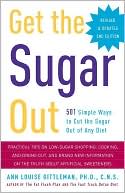"Aspartame is 160-200 times as sweet as sugar.
- In 1965 James M. Schlatter synthesized aspartame while producing an antiulcer drug candidate. In fact, the compound was considered as a potential sweetener only after Schlatter happened to lick his finger, which had accidentally been contaminated with the compound.
- When ingested, aspartame breaks down into several constituent chemicals, including aspartic acid, phenylalanine, methanol, and further breakdown products including formaldehyde and formic acid.
- It is unstable under heat and changing pH conditions.
- Initial safety testing suggested that this caused brain tumors in rats.
- In 1980 the FDA's Public Board of Inquiry (PBOI) recommended against approving aspartame at that time, citing 'unanswered questions about cancer in laboratory rats.'
- In 1981 newly appointed FDA commissioner Arthur Hull Hayes, citing data from a Japanese study that had not been available to the PBOI, approved aspartame for use in dry foods. Hayes had confirmed ties with the artificial sweetener industry; most notably, he was close friends with Donald Rumsfeld, at the time CEO of the company that manufactured NutraSweet (aspartame).
- In 1983 the FDA approved aspartame for use in carbonated beverages, other beverages, baked goods, and confections.
- In 1995, the FDA Epidemiology Branch chief reported that aspartame complaints represented 75 percent of all reports of adverse reactions to substances in the food supply from 1981 to 1995. Consumers and physicians reported approximately ninety-two different symptoms and health conditions.
- In 1996 the FDA removed all restrictions on use.
- Individuals with the previously mentioned condition PKU should not consume this product.
- Aspartame is available in approximately 6,000 consumer foods and beverages sold worldwide."
-Get The Sugar Out, by Ann Louise Gittleman, pgs. 55-56 here's more:
here's more:"STOP EATING AND DRINKING PRODUCTS THAT CONTAIN ASPARTAME! This includes diet sodas and sugar-free foods that have NutraSweet or Equal.
When aspartame was put before the FDA for approval, it was denied
eight times. G.D. Searle, founder of aspartame, tried to get FDA approval in 1973. Clearly, he wasn't bothered by reports from neuroscientist Dr. John Olney and researcher Ann Reynolds (hired by Searle himself) that aspartame was dangerous. Dr. Martha Freeman, a scientist from the FDA Division of Metabolic and Endocrine Drug Products, declared, 'The information submitted for review is inadequate to permit a scientific evaluation of clinical safety.' Freeman recommended that until the safety of aspartame was proven, marketing the product should not be permitted. Alas, her recommendations were ignored. Somehow, in 1974, Searle got approval to use aspartame in dry foods. However, it wasn't smooth sailing from there. In 1975, the FDA put together a task force to review Searle's testing methods. Task force team leader Phillip Brodsky said he 'had never seen anything as bad as Searle's testing' and called test results 'manipulated'. Before aspartame actually made it into dry foods, Olney and attorney and consumer advocate Jim Turner filed objections against the approval.
In 1977, the FDA asked the U.S. attorney's office to start grand jury proceedings against Searle for 'knowingly misrepresenting findings and concealing material facts and making false statements in aspartame safety tests.' Shortly after, the US attorney leading the investigation against Searle was offered a job by the law firm that was representing Searle. Later that same year, he resigned as US attorney and withdrew from the case delaying the grand jury's investigation. This caused the statute of limitations on the charges to run out, and the investigation was dropped.
And he accepted the job with Searle's law firm....
In 1980, a review by the Public Board of Inquiry set up by the FDA determined that aspartame should not be approved. The board said it had 'not been presented with proof of reasonable certainty that aspartame is safe for use as a food additive.' In 1981, new FDA Commissioner Arthur Hull Hayes was appointed. Despite the fact that three out of six scientists advised against approval, Hayes decided to overrule the scientific review panel and allow aspartame into limited dry goods. In 1983, he got it approved for beverages, even though the National Soft Drink Association urged the FDA to delay approval until further testing could be done. That same year, Hayes left the FDA amid charges of impropriety. The Internal Department of Health and Human Services was investigating Hayes for accepting gratuities from FDA-regulated companies. He went to work as a consultant for Searle's public relations firm. Interesting. The FDA finally urged Congress to prosecute Searle for giving the government false or incomplete test results on aspartame. However, the two government attorneys assigned to the case decided not to prosecute. Later, they went to work for the law firm that represented Searle. Fascinating. Despite recognizing ninety-two different symptoms that result from ingesting aspartame, the FDA approved it for use, without restriction, in 1996...
Aspartame is a $1 billion industry. The National Justice League has filed a series of lawsuits against food companies using aspartame, claiming they are poisoning the public. In September 2004, a class action lawsuit was filed for $350 million against NutraSweet and the American Diabetics Assocation."
"Skinny Bitch," by Rory Freedman and Kim Barnouin, pgs. 32-35

